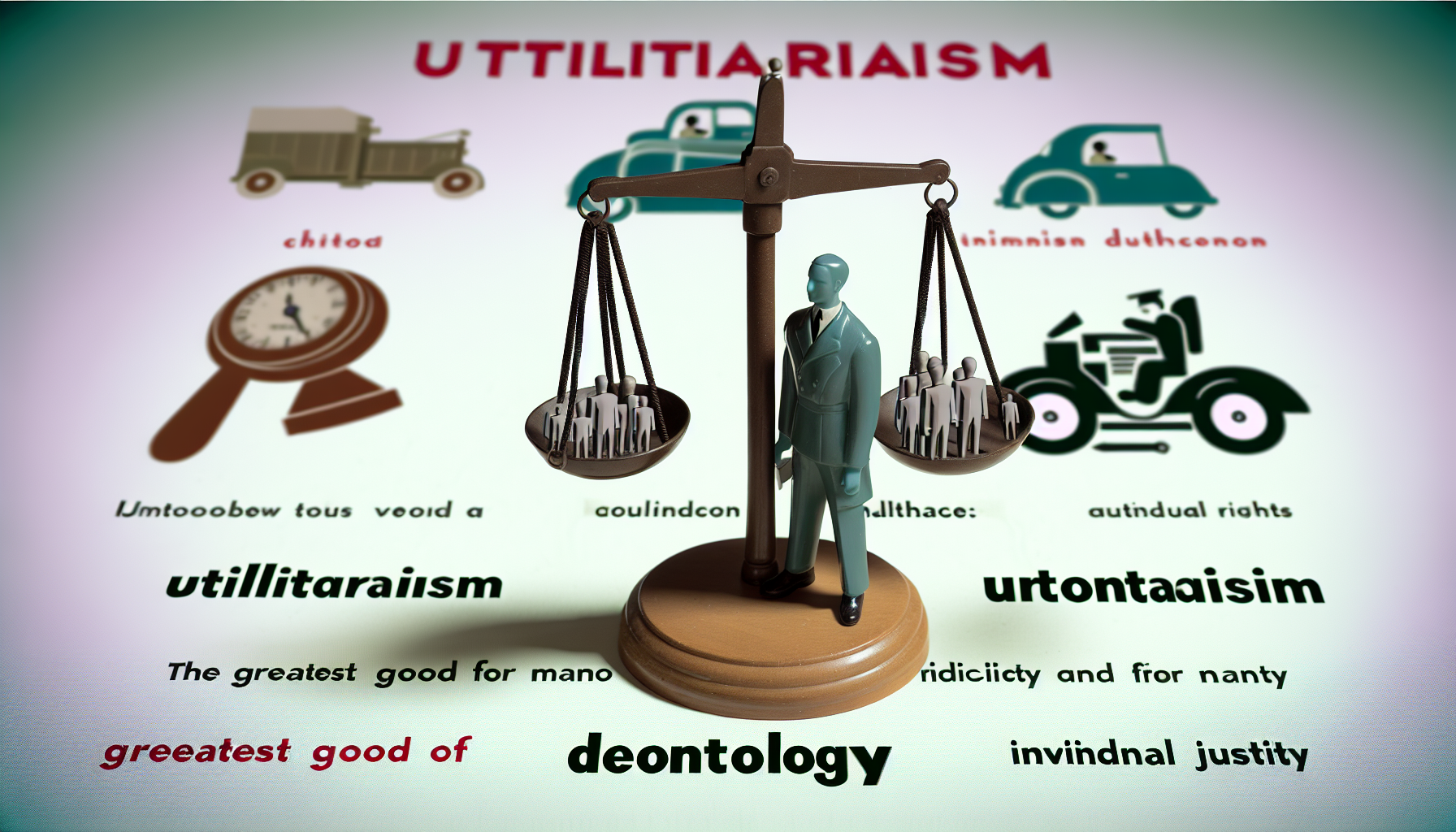As artificial intelligence continues to permeate our daily lives, the question of ethics in AI decision-making becomes increasingly pressing. With machines taking on more responsibilities, from healthcare to criminal justice, understanding the moral frameworks guiding these decisions is essential. Two prominent ethical theories—utilitarianism and deontology—offer contrasting perspectives on how AI should navigate ethical dilemmas. In this post, we’ll explore these frameworks, their implications for AI, and how we might find a balance between them.
What is Utilitarianism?
Utilitarianism is an ethical theory that suggests that the best action is the one that maximizes overall happiness or well-being. This approach evaluates actions based on their outcomes. In a world of AI, a utilitarian might argue that we should program machines to make decisions that result in the greatest good for the greatest number of people. For example, an AI system in healthcare might prioritize treatments for patients based on which will lead to the highest overall health improvements.
The appeal of utilitarianism lies in its clarity and focus on measurable outcomes. However, this framework raises critical questions: Who defines what constitutes happiness or well-being? And how do we measure the impact of AI decisions? Relying solely on utilitarian principles could lead to scenarios where individuals’ rights or well-being are overlooked in favor of the majority.
What is Deontology?
In contrast, deontology is an ethical theory that emphasizes the importance of duties and rules. Founded by philosophers like Immanuel Kant, deontological ethics focuses on the morality of actions themselves, rather than their consequences. According to this view, certain actions are inherently right or wrong, regardless of their outcomes. For instance, a deontological approach to AI decision-making might prioritize respect for individual rights, ensuring that each person’s dignity and autonomy are preserved.
Deontological ethics can serve as a safeguard against the potential abuses of a purely utilitarian approach. However, it also has shortcomings. Rigid adherence to rules can lead to situations where following the law or ethical guidelines results in unfavorable outcomes. In the context of AI, this might mean that a deontological system could overlook necessary actions that would alleviate suffering or harm if those actions conflict with established rules.
The Tension Between Utilitarianism and Deontology
The clash between utilitarianism and deontology illustrates a fundamental tension in ethical decision-making, particularly in AI. How do we balance the desire to achieve the greatest good with the need to respect individual rights? This tension becomes more acute as we consider the capabilities of AI, particularly if it approaches or achieves general intelligence.
For instance, consider a self-driving car faced with an unavoidable accident scenario. A utilitarian approach might program the vehicle to minimize overall harm, potentially sacrificing one passenger to save multiple pedestrians. In contrast, a deontological approach might dictate that the car should not intentionally harm any individual, even if the result is a greater overall harm. These scenarios pose challenging dilemmas for developers and ethicists alike.
Finding a Balance
To navigate the ethical landscape of AI decision-making, it is crucial to seek a balance between utilitarian and deontological frameworks. One possible approach involves integrating elements of both theories into AI systems. By creating algorithms that evaluate not just outcomes but also adhere to established ethical principles, we might develop AI capable of making nuanced decisions that respect individual rights while still working for the greater good.
Another avenue is to involve diverse stakeholders in the decision-making process. Engaging ethicists, communities affected by AI decisions, and industry professionals can help create a more holistic understanding of what constitutes ethical behavior in AI. This collaborative approach can ensure that AI reflects a broader range of values and is not merely the product of a single ethical framework.
Case Studies and Real-World Applications
In practice, we can see the intersection of utilitarianism and deontology in various AI applications. In healthcare, AI algorithms can analyze data to recommend treatments while also factoring in ethical considerations such as patient consent and autonomy. Similarly, in criminal justice, predictive policing tools can aim to reduce crime rates (a utilitarian goal) while also implementing safeguards against racial profiling and unjust detention (deontological concerns).
These case studies underscore the importance of developing comprehensive ethical guidelines for AI. Policymakers and ethicists must work together to establish frameworks that prioritize the well-being of all individuals while considering the collective good. This is a complex but necessary endeavor in our increasingly automated world.
Conclusion
As AI continues to evolve, the ethical implications of its decision-making processes will become ever more critical. Balancing utilitarianism and deontology offers a pathway toward developing AI systems that are both effective and ethical. By encouraging ongoing dialogue and collaboration among diverse stakeholders, we can create AI that serves humanity—not just by maximizing outcomes but by respecting the inherent dignity and rights of individuals. In doing so, we can harness the full potential of AI while safeguarding the values that define our humanity.

Leave a Reply